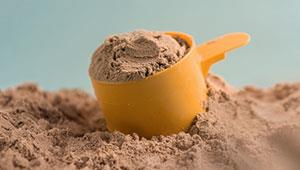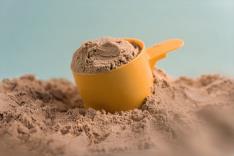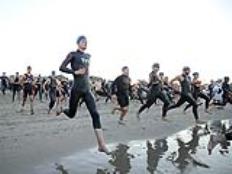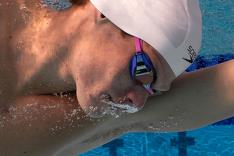
Most triathletes are busy people. They have work and family commitments, and they often respect each as a priority over training and racing.
Many triathletes are also big dreamers. They want to top their previous results and race further or faster than their competitors. Because of this, most triathletes are dedicated, hard workers who are willing to do what's necessary to turn dreams into reality.
The true challenge for many triathletes is not a tough swim set, long hours in the saddle or a hard track workout, it's balancing priorities of family, career, faith and others with the demands required to achieve those lofty goals.
Efficiency
The key to balancing life and triathlon is to ensure training and racing are integrated into the triathlete's lifestyle and not just added to an already full calendar. Athletes should always ensure their triathlon plans reconcile with their availability and support of loved ones.
With free time at a premium, efficiency is key. Every training session should have a specific purpose and measured amount of intensity and duration.
With the integration of data-driven technology, there's a trend away from large volume training and a new focus on intensity. This approach to training will not only improve performance and lower injury risk, but it's also much more feasible to fit into a busy schedule. For example, the TriDot Training System uses algorithm-based technology to produce custom-built training plans that are optimized for each athlete.
Recovery Workouts
When time is short, recovery sessions are usually the first to be cut. However, these workouts are important to produce performance gains and injury prevention.
Recovery workouts are generally short and low intensity, and can be a great opportunity to include significant others, children or friends. A few laps at the community pool, an easy bike around the neighborhood or a brisk hike may be all you need to prepare for upcoming quality sessions.
Achieving balance between triathlon and other priorities is possible and will yield a more enjoyable triathlon experience for all involved. A triathlon coach is a great resource to assist with this. Not only will a good coach help an athlete achieve their goals, but he or she will also ensure training reconciles with the athlete's limitations and life demands.
Recent Articles:
- 7 Reasons To Do An IRONMAN In 2016
- Athlete Food: Melissa's Stovetop Fajitas
- Indy 500 Winner Tony Kanaan on Triathlon, Training and Driving
Connect with us on Twitter, Facebook, Instagram or Pinterest for more tips, recipes and ideas to fuel your ACTIVE life.
Looking to gain a competitive edge this triathlon season? The TriDot Triathlon Training System combines your personal biometrics with their database of triathlete performance metrics. Learn more here.








Discuss This Article